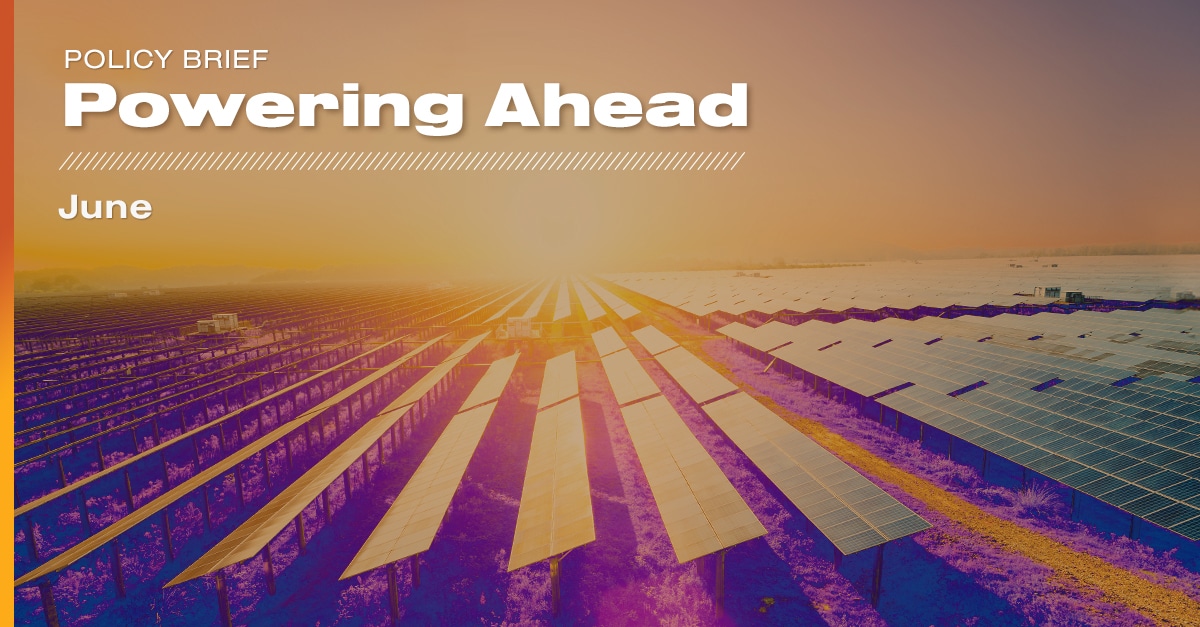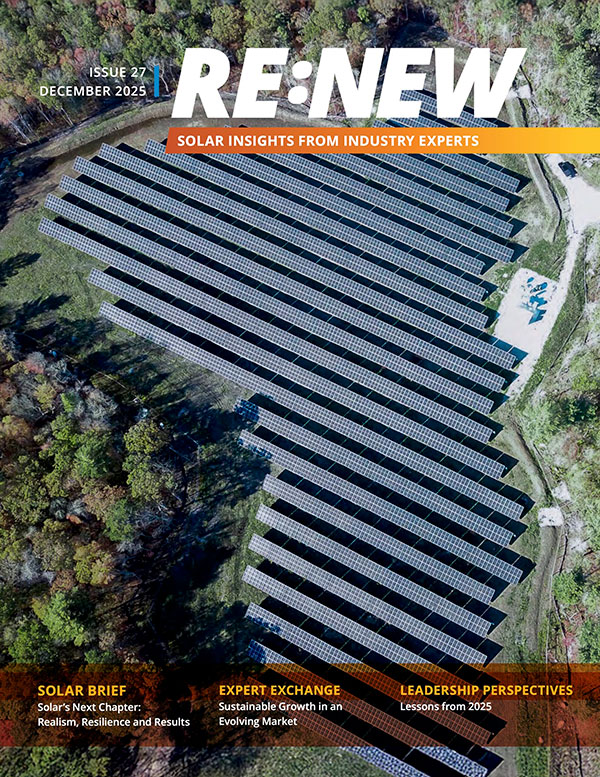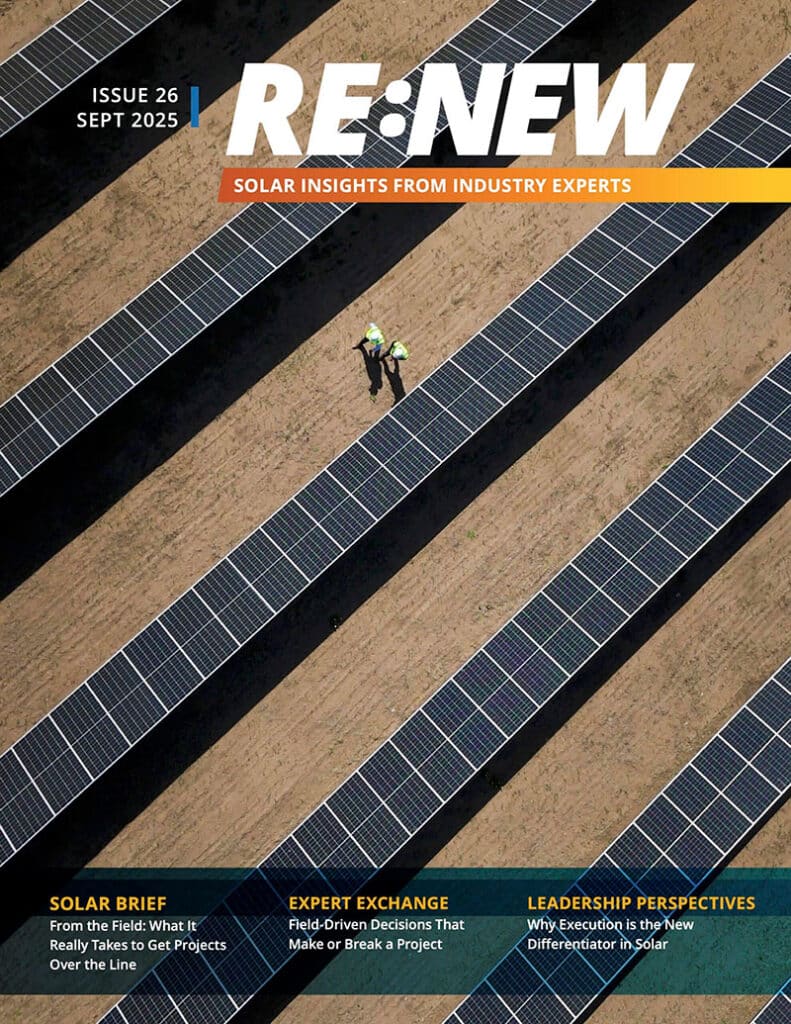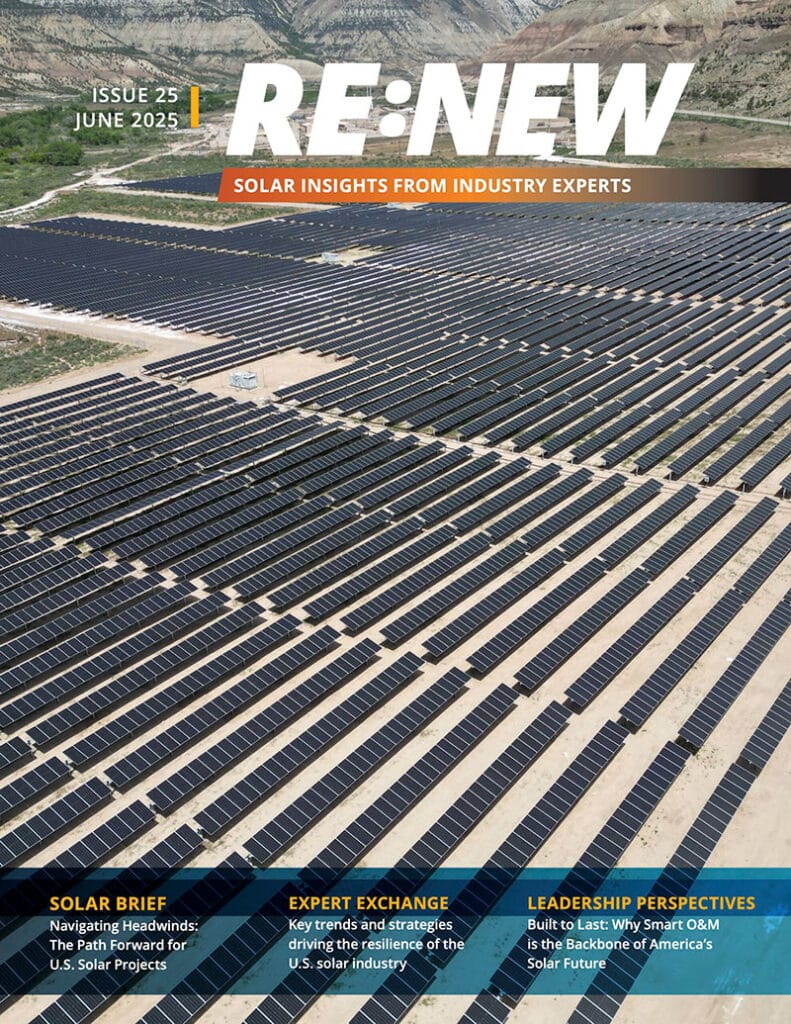The summer season is upon us, which for many people means vacations by the beach and more outdoor activities for those in northern climates. It also means state legislatures moved quickly to clear their calendars before they recessed, and community solar bills were on many dockets. The results on those bills were mixed but trended positively.
Here are the front and center issues that we are watching as June moves forward:
Federal Updates
The U.S. Treasury and Internal Revenue Service have been hard at work issuing guidance on domestic content rules and the Low-Income Communities Bonus Program. They have also created guidelines for replacing the investment tax credit and production tax credit, which will be phased out in 2025. The new, technology-neutral clean electricity production credit will include a host of renewable energy technologies, including solar.
The U.S. International Trade Commission (ITC) issued studies over solar imports from Southeast Asia and their effect on U.S. manufacturers, backing a petition for tariffs by a collection of prominent solar module manufacturers. Preliminary duties could be imposed by October. This move is part of efforts to protect the U.S. solar industry from unfairly low-priced foreign competition
Northeast Update
Vermont passed H. 289, which requires the state to use 100% renewable energy by 2035. The bill was vetoed by Governor Scott but was overridden thanks to veto-proof majorities in both houses in favor of renewable energy development.
In New York, the New York State Energy Research and Development Authority announced the reinstatement of the inclusive community solar adder. Developers who couldn’t take advantage of the Upstate Community Adder will now have access to a fixed $0.07/watt incentive. The Public Service Commission could act any day on a National Grid proposal to add costs to interconnection projects at any point before they are commissioned. We’re watching those developments closely, given the interconnection backlog in the state and elsewhere.
Mid-Atlantic Update
Unfortunately, we are still waiting for the Pennsylvania Senate to move forward on its community solar bill, which passed the House earlier this year. Despite a full docket of budget hearings in June, we expect to see some movement on the bill.
In New Jersey, applications for the state’s permanent community solar program were opened in May. Moving forward, applications will be accepted and considered on a rolling basis. The state Senate passed S2816, encouraging utilities to submit transmission upgrades as part of their long-term plans to the Board of Public Utilities. Given the struggles across the country of bringing renewable energy projects online because of a lack of transmission capacity, this would be a welcome step forward.
Maryland’s Public Service Commission has initiated formal rulemaking for its permanent community solar program in hopes of having the permanent rules in stone by January 1st.
Central Updates
The Illinois Shines new program year opened for applications on June 1st offering 800 megawatts across six different categories. Negotiations are also continuing on the specifics of the Renewable and Storage Industry Omnibus Bill, with the goal of passing it during a veto or lame-duck session later this year.
Michigan is showing signs that it may be on the verge of passing a community solar program with movement on both SB 152 and SB 153. It was heard in committee earlier this month and there are signs of interest at the legislature.
In Ohio, two significant developments occurred. There was another hearing on HB 197, which would create a 1,500-MW community solar pilot program, but it still is stuck in committee. In addition, SB 275 would introduce virtual net metering in the state. Hearings on both bills are ongoing.
But most of the tangible successes occurred in Minnesota. SF 4942 incorporated the Minnesota Solar Energy Industries Association’s priorities, including funding for interconnection upgrades, automated permitting for small-scale solar projects and streamlined permitting for large-scale projects. It also funded an extension of Xcel Energy’s Solar Rewards program with a $50 million influx of money.
Western Updates
Finally, we turn our attention westward. In Alaska, a community solar bill passed the legislature and awaits the governor’s signature. It mandated the Regulatory Commission of Alaska to create rules on community solar projects within a year.
California’s Public Utilities Commission voted to approve their revised proposed decision which will not create a viable community solar program. Once again, the question of the illusory cost shift has been resurrected. In the legislature, SB 1374 passed the Senate and has widespread support in the Assembly. The bill would reverse the CPUC’s head-scratching regulation that prohibits self-consumption of onsite solar for schools, farms, strip malls and apartment buildings and improve the net billing tariff for the aforementioned properties.
Lastly, Colorado’s governor signed the Inclusive Community Solar bill, which hopes to revitalize community solar in the state. The bill focuses on improving solar options for low—and middle-income residents by providing a minimum 25% discount on electricity rates. The governor also signed a bill requiring significant improvements in distribution system planning to modernize the state’s aging electrical grid.
As always, we will monitor all of these legislative and regulatory measures and will update you next month. Until then!
More Recent Blog Posts
Massachusetts: A Visionary State in Community Solar Growth
February 13, 2026
Standard Solar · 3 min read
Unlocking Student Imagination with Solar Energy
January 20, 2026
Greg Libecci, Energy Advisor, Generation180 · 4 min read
Delivering on Our Promise: 2025 in Review
December 11, 2025
Scott Wiater · 3 min read
How Student Health Unlocks School Energy Projects
December 3, 2025
Standard Solar · 4 min read





Share